Sincerity is seldom something easy to find in life. As humans, we search for meaning, truth, and something real. Thankfully, music can offer that outlet, and there are bands such as Soul Asylum who fill the gaps. Out of the Minneapolis, Minnesota Rock scene, Soul Asylum is a band that has withstood their share of ups and downs, highs and lows, just like any other before and after them. Formed thirty-five years ago, it was not until 1992’s Grave Dancers Union album the band would rightfully receive the mainstream recognition they deserve.
Going triple platinum, the album is still adored by listeners over two decades later as Soul Asylum continue to tour and offer new and exciting music. Recently releasing their eleventh studio album, Change of Fortune, the band led by founder Dave Pirner offer one of their most diverse listens to date, proving they are still one of Alternative Rock’s elite. Recently we sat down with the personable and authentic Pirner for a closer look at modern times in Soul Asylum, the changes involved in life, the process behind Change of Fortune, and much more.
CrypticRock.com – Soul Asylum has kept themselves very busy over the past few years steadily touring. Now you recorded a brand new record, entitled Change of Fortune, and a new partnership with eOne Entertainment. Tell us, three plus decades into your career now, how would you describe the place Soul Asylum is right now in 2016?
Dave Pirner – Well, you pretty much just summed it up to details. I’m really excited about Change of Fortune. A lot of passion was put into it. It almost made a full circle through the whole sort of Do It Yourself aesthetic. This many years into it, we are pretty adept at doing it ourselves. It was a pretty streamline process, although, it did take quite a long time because we were cutting corners. We recorded the stuff in New Orleans, real basic, writing the song to a click track, then bringing it to Michael, taking it to LA, and working with John Fields, who worked on the last two previous records. He is a Minneapolis guy and also the guy that I ran into walking down the street and he said, “I need to get you in a room with Michael Bland.”
Ever since Michael joined the band, it’s been kind of a whole new level of something that has crystallized over the years. I think that’s just sort of because me and Michael are kind of uncompromising. He is pretty relentless about people being on point if you will. There are certain advantages of being able to overpower the band from the drum kit. I put together a trio after we made Candy from a Stranger (1998). I was playing drums and I realized, you can direct a lot when you are stopping, starting, talking, and moving through a new song or composition. The alliance between me and Michael, Winston, and Justin is as strong as ever.
We did a whole summer with Meat Puppets and it was a blast. It was like going back to the America that I grew up in and sort of just doing the real deal. I loved it. I loved being out with the Meat Puppets, the lack of bullshit, and the amount of this real playing was going on. After you do it for a while, you kind of start to understand what you want it to sound like, what your aesthetic is, and what you are not willing to put up with. It’s all feel, pretty much (laughs).
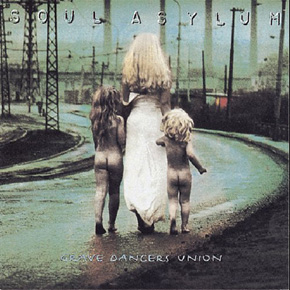
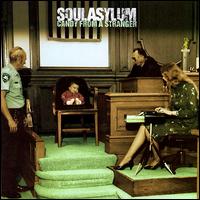
CrypticRock.com – Absolutely. As you move along in life, things change. Your points of view change, your approach to life changes, etc. Do you think that maybe over time you have changed your approach to songwriting at all?
Dave Pirner – Yeah, after spending fifteen years in New Orleans, it’s not something that really changes the way I write lyrics so much as it’s just the way that perhaps the cadence or the syncopation of the lyrics might lean towards a different kind of a beat if you will. I guess that is my way of trying to take the timelessness of music and turn it into some sort of Rock-n-Roll universal language or something. You just try to soak it up, so much music in New Orleans, and so many incredible musical experiences I’ve had in my life that it all affects you a little bit. Next thing I’m studying things from inside because I’m doing an Alex Hilton tribute and a David Bowie tribute. Things like that really inform your understanding of what it is you are trying to do here (laughs).
CrypticRock.com – Right, it all has to be influences and inspiration. Thus something you apply to your own music.
Dave Pirner – Yeah, the chord structure of Jazz music is sort of different than like Folk music or Punk music in a way that you can, no pun intended, augment things a little bit. I have just been listening to these incredible New Orleans musicians for awhile now and it’s certainly changed the way I listen to things. I think I went down there to listen. I got to a point where I felt like I was blasting people every night and listening to enough music, and that was the place for me. I felt, I want to go to Jazz clubs and listen to live music that isn’t even amplified, that’s just a beautiful thing. It’s so different than what I was doing. That brought me back to when I was trying to understand Jazz in third grade when I was playing the trumpet. It just goes in this sort of circle, or evolution, or series of revelations, if you will (laughs).
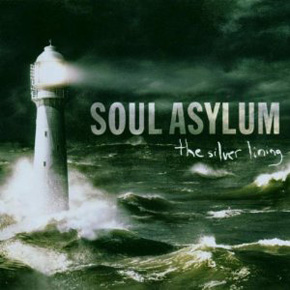
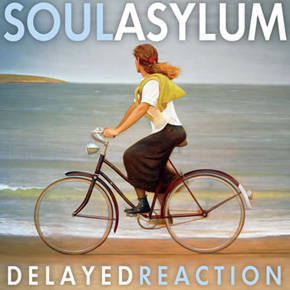
CrypticRock.com – It is very interesting actually. That leads us to now, where you got this new record, Change of Fortune. It is a very diverse record. What was the writing and recording process for this new album?
Dave Pirner – As I was trying to explain, the digital process has changed things in good ways and bad ways. I still prefer to listen to vinyl that’s recorded on analog tape, which you can spend a lot on a record like that (laughs). It just sounds really different to me than an MP3 that comes over the computer. I never want to be the crusty reticent, technophobic, fucking luddite, or whatever; that also kind of goes in a circle. All of a sudden, you are really wondering who is using tape and who is not, if you are listening carefully enough (laughs).
CrypticRock.com – Exactly. Vinyl is actually hip right now. It is ironic, considering the physical format has died essentially, but vinyl still is doing well.
Dave Pirner – Yeah and it’s great. That is mostly what I play around the house. It is not that great paying $30 for a record at Urban Outfitters (laughs). There is a record store on the street that just sells Hip Hop vinyl and I fucking love it. I love going in there and checking it out. It just sounds so good on vinyl on my stereo. I don’t profess to know how J Dilla makes his records, but my understanding is that I’m listening to things that were recorded on vinyl a long time ago and sort of reconfigured to a process that the more you digitalize it, the more you squish the sound, you start to lose a lot of the feel, I guess. That physicalness of the needle and the record to me is like the difference between pinball and a video game. Where everything is sort of predetermined and binary and algorithms and all this crazy stuff, but if you like that than you like this. If you like this, then you will like that, and people’s taste is kind of being dictated by a computer. It’s kind of crazy if you walk away from music without really giving it a chance because some computer told you what you were supposed to like (laughs).
CrypticRock.com – (laughs) How true it is. With your Change of Fortune, you seem to have pushed the envelope a little bit. The song structures and the sound, are a little bit different, but also attain the same sound you guys have been signature for. Was that your objective, to push the envelope a little bit this time, to try some new stuff?
Dave Pirner – Well I like to think it’s a primary objective every time. I’m listening to the low end of this record and it’s kind of kicking my ass, which is nice. I specifically remember being in Germany and listening to While You Were Out (1986), and just going, “There is no bass drum on this record.” It’s a combination of people still learning, people over-playing, and people kind of not understanding the space. That’s something I learned from listening to Miles Davis.
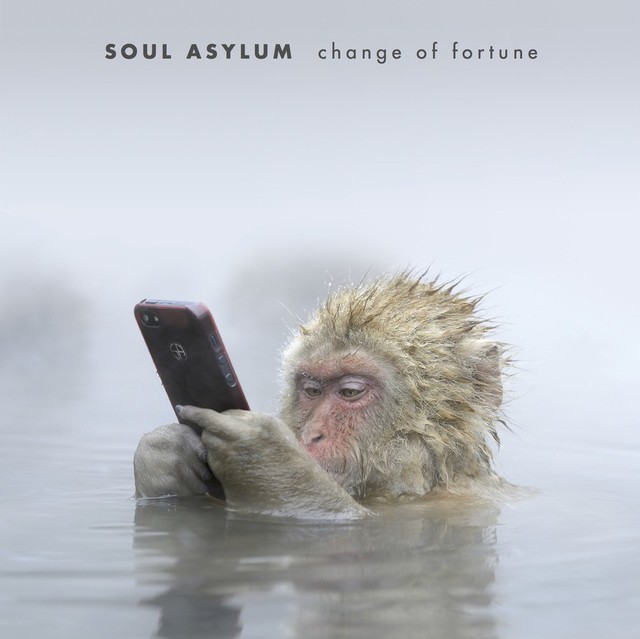
CrypticRock.com – Right, that progression happens over time. Change of Fortune is really a strong record. Soul Asylum has always put out quality music, and this record will strike people as well. You mentioned working with Michael, and you have been working with Michael for around a decade now. Then you brought in Winston and Justin a few years ago. As you mentioned, you guys have some good chemistry. Those who have seen the band live can see it on stage. What has it been like working with the core group of guys?
Dave Pirner – It’s been amazing because you live and you learn. Sterling Campbell, who is a drummer that sort of came into the scene and played, I listened to the playback and got teary. I was thinking, “This is how I always wanted my music to sound and it’s never sounded this way before.” He’s just a really great drummer, I just reconnected with him because he quit Soul Asylum to play with Dave Bowie. I couldn’t begrudge him for it. Just talking to him a little bit about the shock of his singer being gone all of a sudden, it’s just another one of those things where you just never know when the other foot is going to drop a shoe. It remains unpredictable, Michael has pretty much saved the whole thing for me. I remember specifically when he started out with us, by the way it was about a ten-second audition, I knew that was the guy. Me and Danny would walk off the stage and go holy shit. We just remember when shows like that would just completely fall apart. It just stopped happening when Michael came on board. That’s a big deal, the difference between sitting in the dressing room and going, “I can’t believe we messed that up” and sitting in the dressing room going, “We delivered.”
CrypticRock.com – Right, that does make a big difference, and chemistry makes a big difference. You have to be on the same wavelength with each other.
Dave Pirner – Yeah, and that’s pretty amazing. We have pretty distinctive backgrounds. At the same time, we kind of grew up listening to the same shitty Minneapolis radio stations. It continues to amaze me when something like ELO, or Boston, or someone like that comes on the radio and Michael or Winston can just pick apart every player, every beat, and every chord. It’s just crazy, I did not see this coming. It’s a pretty well-informed group.
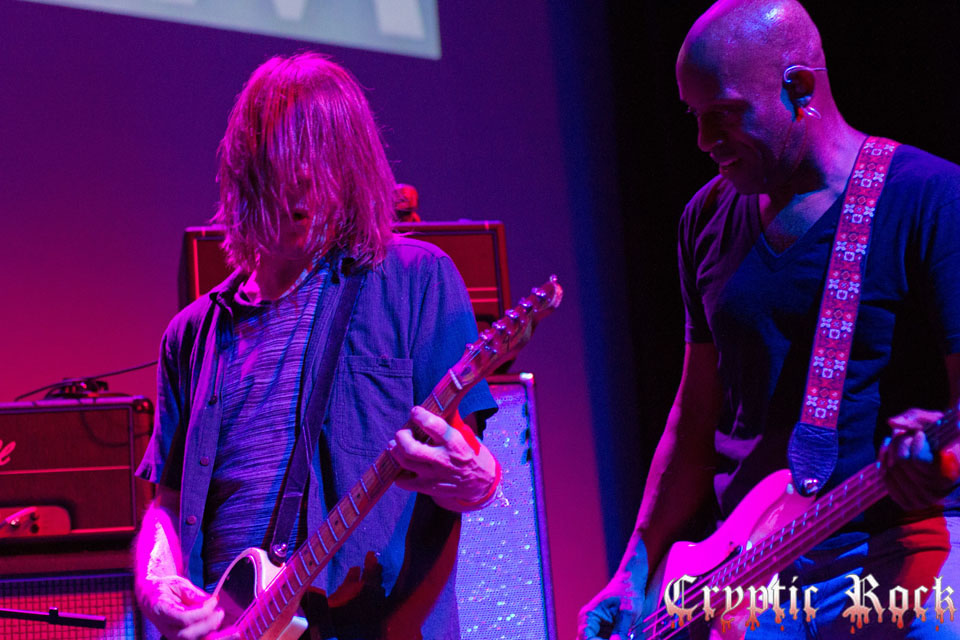
CrypticRock.com – It certainly shows when you guys play live and in the studio recordings. The band is very energetic live and a lot of fun to watch. Obviously, you have been doing this a long time. Do you pride yourself on being a live musician?
Dave Pirner – Yeah, I think that’s where the real thing is. I think that’s what I’m talking about when I’m saying you can’t extract it out of an algorithm. You have to go see the people doing it, the fact that they are doing it is pretty goddamn special. Yeah, that’s the thing that got me excited about listening to musicians in New Orleans and this sort of purity that’s benign to the ways of commercialism. To that effect, it’s pretty eye or ear-opening.
CrypticRock.com – That is very refreshing to hear. Seeing you spend a lot of time on the road, do you foresee some touring in support of Change of Fortune in 2016?
Dave Pirner – Oh yeah, we are just always chomping at the bit to get out there and play live shows. That’s what it is, we are players, and that’s how we plot our craft if you will (laughs). Me and Michael are both just studio rats, so we just assume to be playing a gig or recording in the studio, that’s what we love to do. We are happiest when we’re doing that I think.
CrypticRock.com – Well, excellent. It will be exciting to see you guys hit the road again. As you mentioned, you toured with the Meat Puppets in the summer of 2015, that was a really killer tour. It would be cool to see another really nice package like that again for this summer.
Dave Pirner – Yeah, it’s really crazy to try to get a good chemistry going on where everybody is a fan of everybody else and it is for real and not something that’s more of some sort of a theme to it. If I went out with my favorite bands, it would be more like those Bill Graham shows with the Grateful Dead and Miles Davis, The Monkees, and Jimi Hendrix all on the same bill or something (laughs).
The Meat Puppets thing had a whole purity to me, not to use this word but, it was really cool to see Kirk and Elmo out there playing. His son is now the guitar player. I’ve been watching this band my whole adult life and I’ve been a huge fan. Just to see their evolution in both their music and how they sort of take the bumps of the road, or whatever you want to call it, and overcome the obstacle. It really felt like the real deal. We were just playing in Rock clubs and doing our thing. It’s my element, it’s not all of the smartest business move, but it is hard to try and figure out what would get people to come out that wouldn’t be coming out anyways (laughs). You want that chemistry where things are complementary. It was the only tour I’d been on in quite some time where I watched the headlining band every night cause they were just that good. It was a great tour for us, and that’s the kind of thing you are looking for.
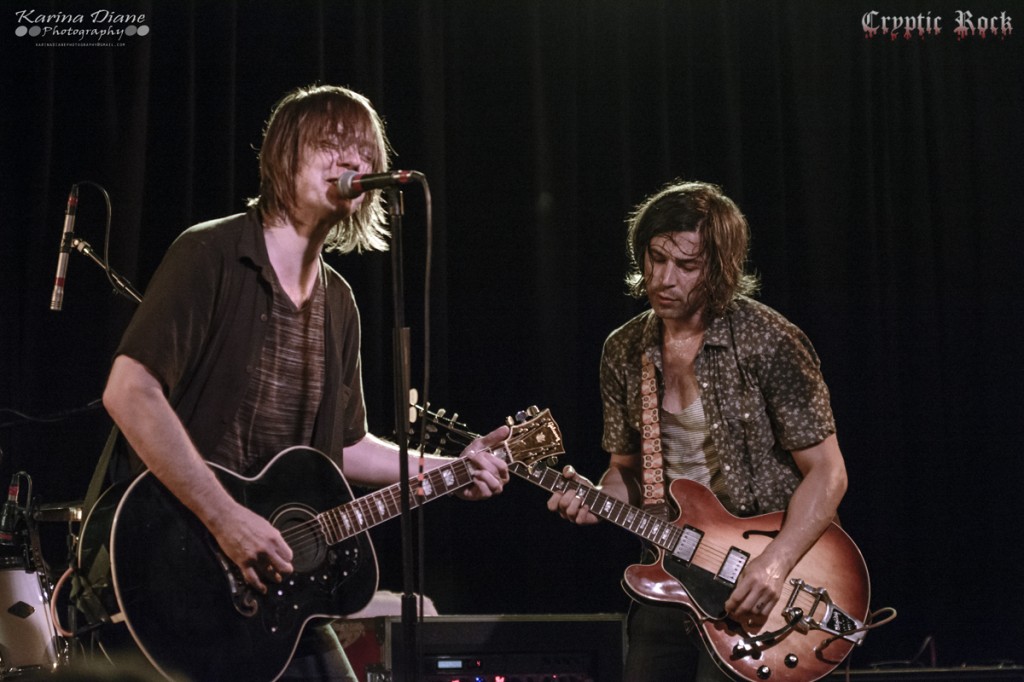
CrypticRock.com – Exactly, you do not want it to be something that is kind of packaged together where it is almost manufactured. You have a pretty wide range of musical tastes. You also come from a Punk background. With that said, what are some of your early influences leading up to now?
Dave Pirner – The story kind of goes, I was playing trumpet in school and I knew that the second trumpet player was better than me and was taking lessons from his older brother. One day he brought a Jimi Hendrix Are You Experienced? (1967) record to band practice at high school. I just went, “You know, I am going to try the guitar, because trumpet is too hard,” or something. “This is where it’s going to be at for me.” I think I was trying to move to saxophone because there were more saxes in Rock bands at the time, so it just kind of made sense for me. Then the Ramones came along and I was like, “Shit, I’m playing along to this shit, I can understand it.” That’s the beauty of the liberation of the Punk Rock thing is that these people who have so much to say could figure it out without going to the Berklee College of Music, or whatever the case may be.
That’s sort of where I got my cue. I was like, “If the Ramones can do it, maybe I can too.” You got the Sex Pistols in there and you got The Clash in there, and you got these groups that were really speaking to me. It was the portal that I was going down to get somewhere. It does go in a circle and you are always kind of wanting to be a lyricist like Leonard Cohen, or Bob Dylan, or someone like that, but you want your band to pack a punch. It’s not really a contest, but I can honestly say that I enjoy the quietest classical music as much as I can enjoy Pantera, Miles Davis, and Babes in Toyland, or whoever.
It’s that eclecticism that brought me to New Orleans and made me try to make this full circle back when I was trying to understand playing the youth symphony orchestra and try to understand how it all went together. You can’t break it down much more than a trio. When you hear what Jimi Hendrix does with a trio, you think, “That’s a lot of noise for three guys.” It’s economical, that whole mother of invention where you don’t have shit to buy a bunch of fucking expensive stuff. You can’t be in a stage band after high school very easily. Maybe if I figured that out I would have moved to New Orleans right after high school (laughs). It was kind of the primitive element of Punk Rock that I sort of fell in love with as a sort of raw form of expression that just really spoke to me.
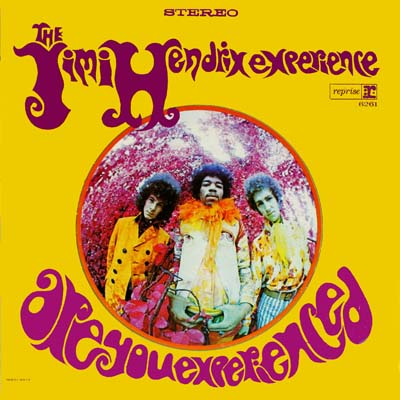
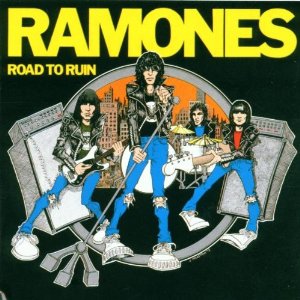
CrypticRock.com – There is something special about Punk Rock music in that form like you said. It has a liberating feeling. It is not about technicality, it is about the feeling of the music, and the message, and that is what makes it great.
Dave Pirner – Right. Michael Bland has perfect pitch and he will tell you. I can listen to my first record and I had not even learned how to sing yet. I was learning as I went along (laughs). I had these great examples such as Mark E. Smith from The Fall, Leonard Cohen, Lou Reed, and people that were not Aretha Franklin with their singing. They were still coming across. Even John Lydon seems to be more inventive than a crooner, if you will (laughs).
CrypticRock.com – John Lydon is a very interesting guy and a very misunderstood one too. My last question for you is pertaining to movies. Last we spoke, you had given us a list of some Horror movies you enjoyed. If you have seen any new ones lately, have there been any you enjoyed?
Dave Pirner – Oh man, that is a tough question because I’ve been watching a lot of movies. I’ve also sort of reunited with the guys that directed the “Artificial Heart” video. I’m scoring his movie as a documentary of this magic shop in America, which happened to be in Minneapolis. That’s pretty exciting. I am also reconnecting with Mike who did all the special effects on “Artificial Heart.” He’s still at it, he does a haunted house every year. There’s a certain taste for Horror in New Orleans, there’s a certain taste for the mystery of that kind of thing. If you look at “Artificial Heart,” I obviously have a certain amount of taste for the humor that is Evil Dead II (1987).
I come back to movies like Carnival of Souls (1962) and things like Picnic at Hanging Rock (1975). It’s a beautiful movie and I wouldn’t really say that’s a Horror movie. There’s no violence, but there’s a lot of implied violence. I think maybe one thing I’ve noticed over the years is watching a German Horror film or Japanese Horror film, it’s pretty scary (laughs). I am past the part of being grossed out. I still dig it when people do that thing where they just use three times as much blood and there is a kind of a Scorsese thing. Tarantino is doing it a lot now where there’s just blood flying everywhere (laughs). I guess I just have some sort of a guilty pleasure for it, or there is something about how it’s executed and thinking about how they rigged it up.
Mike, who did the special effects on “Artificial Heart,” rigged this thing up for me back in the day when I had this band called Looney Bin. It was the guys of Soul Asylum, but we’d dress up in ridiculous outfits, and play stupid songs. I had painted my body white and I had a blood tube coming down my forehead under a hat and a big syringe behind me. The idea was, I was going to push the syringe and all the blood was going to come down my forehead and all over me. It just shot the whole first three rows of the audience (laughs). Then, Mike came out and crucified a fake pig on a cross, the whole thing was pretty goddamn funny. There are still people that tell me, “Yeah you squirted me with blood 20 years ago,” and I’m like, “You were at that gig?” (laughs)
There are elements of it everywhere, you realize that Sam Raimi and the Coen brothers have been working together for decades, as far as I can tell. At least they have an alliance, it’s more about movie making than what kind of movie you are making. That I find pretty interesting, that a movie is challenging enough that it can still be a Horror movie.

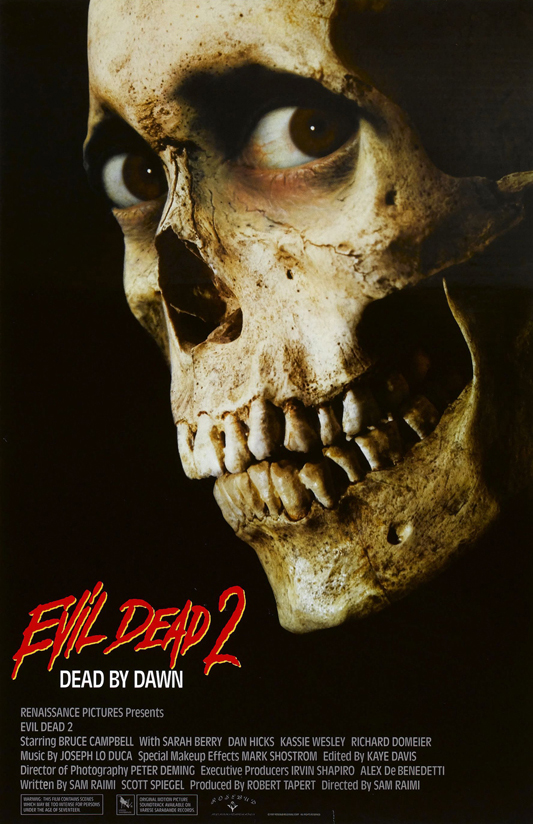
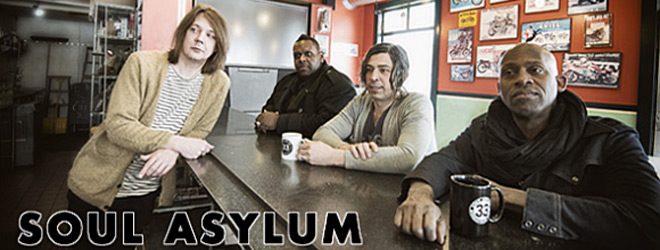

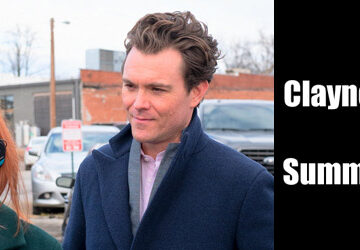
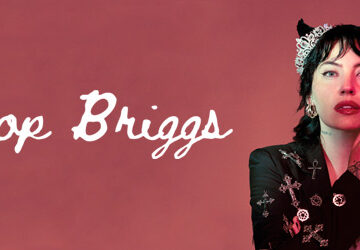


No comment